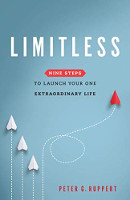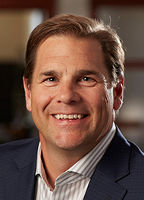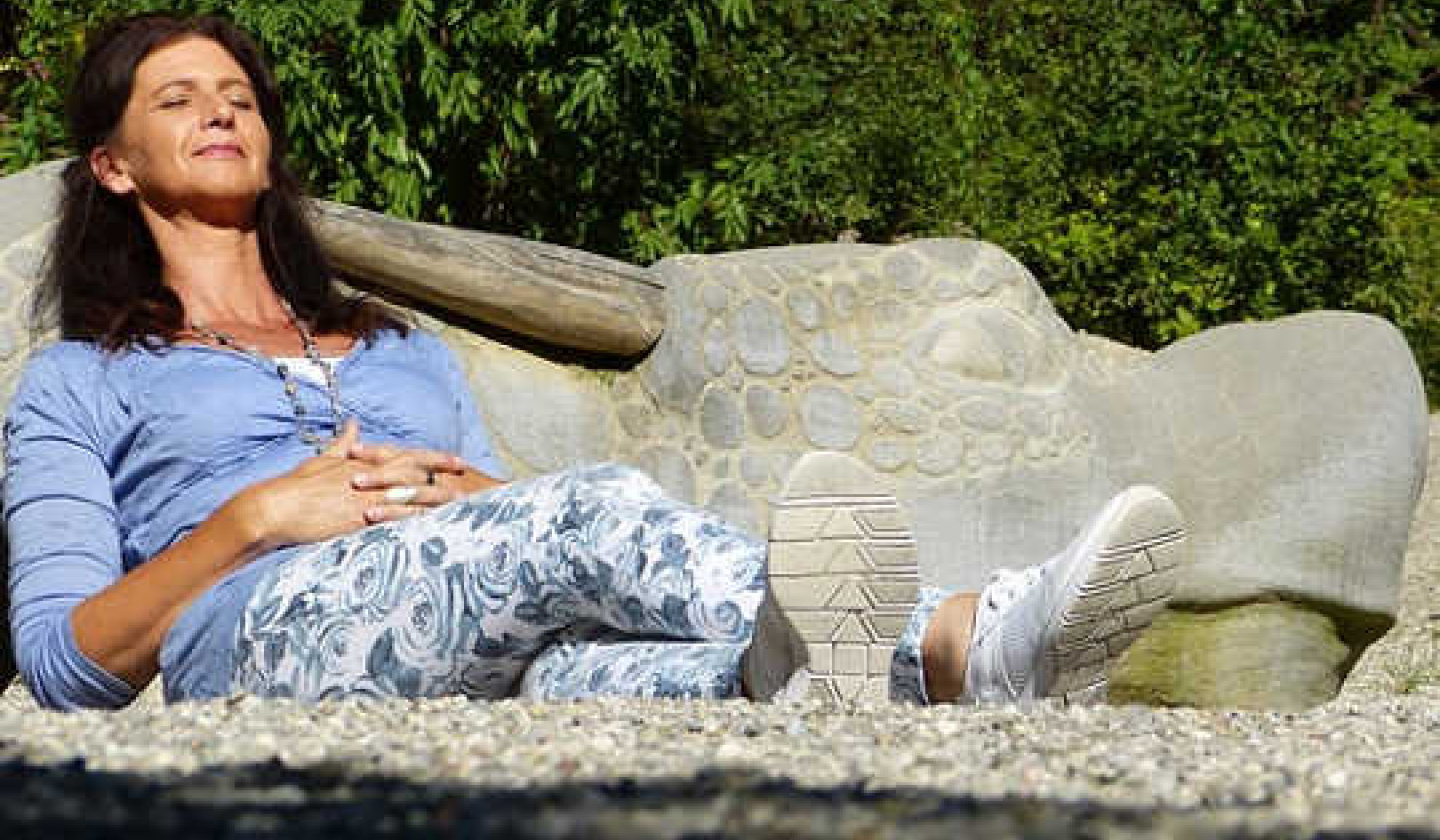
Image by Joey Velasquez (image colorized by InnerSelf)
Narrated by Marie T. Russell.
Courage isn’t the absence of fear but rather the decision
that something else is more important than fear.
—FRANKLIN D. ROOSEVELT
Courage is not about being fearless in the face of a scary situation. It is the willingness to move forward or take action— despite your fear. It’s about finding the will to bridge the gap between where you are and where you want to be, even when getting there seems daunting.
Over the years, I’ve learned that no matter how many times I act courageously, I can still count on two things:
-
I will be afraid.
-
I need to be brave enough to act anyway, even if it’s difficult or means breaking away from other people’s expectations of what I should do.
Having the courage to move ahead despite fear is always hard work and is a never-ending growth process.
The Courage To Move Out Of Your Comfort Zone
We likely have all heard this commonly quoted definition of insanity: doing the same thing over and over again, yet expecting a different result. This applies to building courage as well. If you never get out of your comfort zone, and instead continue surrounding yourself with the same people, the same perspectives and the same norms, you’ll never stretch yourself in ways that encourage you to take big leaps in your life. You’ll continue to play it safe, and you’ll never learn to be courageous.
Is there a situation in your life now that requires courage to move forward?
What might it look like to take specific action—despite your fear?
Presidential Medal of Honor winner Desmond Doss was a conscientious objector who was drafted into World War II and required to serve in some capacity despite his beliefs. Initially, he was the object of ridicule from other soldiers for his staunch religious convictions and refusal to carry or use a weapon. Later, however, he was serving as a field medic on the island of Okinawa when his unit came under extreme fire from the Japanese. The unit was trapped on the edge of a cliff, and his fellow soldiers were exposed and being gunned down at an alarming rate. Rather than cower or run, Doss quickly rigged an innovative stretcher using ropes and pulleys to lower his wounded comrades down the cliff where they could be moved away from their forward position and get their injuries treated. A defenseless, unarmed combatant, he risked almost certain death while he took nearly fifty men off the cliff, saving their lives.
This is just one example of possessing relentless courage under extreme conditions. Examples like Desmond Doss can fuel our energy levels and inspire us to move forward in much less treacherous situations.
Courage is important for three reasons:
1. Courage gets you where you want to be
You can have big dreams, create your vision, discover your passions and find supportive mentors but if you never find the courage to believe in yourself and take that first step, you’ll never get where you want to go. You must be willing to leave what is secure and comfortable in order to allow room for everything else to happen. You have to be willing to break away from so called, “friends,” who want to dismiss your dreams or hold you back.
2. Courage fuels the next time
Taking action when you know something is failure-proof doesn’t require courage. But attempting something, even when knowing you might fail, is the key to learning that there is no shame in failure. Every failure is simply an opportunity to realize that it is possible to get up after you fall, learn from the experience and course correct. Many great people have experienced failure and recovered. Like them, you can learn from your experiences and do better next time. Courage is what fuels the impetus to get back up and do better the “next time.”
3. Courage builds on itself
The more we display and practice courage, the more we gain confidence. And the more we gain confidence, the less fearful we become. Any individual’s personal and professional lives inevitably present challenges and opportunities that seem daunting. Facing each of these proactively, one by one, can help you literally practice having courage in the face of these challenges. The more you find success in using your courage to build toward your next step, the greater the chance you’ll learn to see how resilient you really are.
How Can I Develop Courage?
Step 1. Practice
The best way to be more courageous is to keep trying. Practice exercising courage in both small and big ways and you’ll soon find that fear gets a bit smaller each time—although it never completely goes away.
Step 2. Surround yourself with courageous people
Think about the five people you interact with most often. Are they courageous? Do they take risks out of their comfort zones to progress toward their goals? Spending time with others who encourage us to step out of our comfort zones is essential. When we find a group of people who live courageously, we feed off of their strength and learn that we can begin to encourage others to be courageous as well.
Step 3. Know what you value
When you know what’s important to you—the things you believe are worth standing up for—it’s a bit easier to find the courage to take action. In the previous story of Desmond Doss, he stood by his values and acted in accordance with them despite constant initial ridicule from his peers. He was able to be courageous in a way that didn’t compromise his deeply held values, and he succeeded well beyond what anyone would have expected of him.
Step 4. Be self-accountable
We are in no way entitled to success in life. No one owes you a job or a better opportunity. Your destiny will be a result of what you do, so learn early that blaming your shortcomings on others isn’t going to lead to success. Pointing fingers is never productive. The only way to finding personal success is understanding that you are the only one who is going to be able to move you toward your dreams and then finding ways to hold yourself accountable to take those actions.
Step 5. Get comfortable with failure
Failure is the best teacher any of us could have. So, don’t be afraid of it. Be smart about what you pursue, but embrace failures when you can learn from them.
Which of these five ideas resonates with you most?
What could you start working on today to develop more courage in your life choices?
My Story
Back In 2013, I had an idea to create a military celebration and thanksgiving event for veterans in my city. I saw a need, so I let it roll around in my head for a while. I finally wrote it down as a goal. It then sat on my goals list for a couple of years before I said anything to anyone about it.
I knew I had no military background or experience, and I wasn’t even sure how to pull off such a celebration. I only had a desire to show appreciation for all those who had sacrificed so much and served our country. Would anyone come? Would people even think it was a good idea? What if there were already events like this out there? What if no one would serve on a planning committee with me? What if the event wasn’t well-received, and I couldn’t find people to support it?
Fear is what kept me from moving forward.
But after periodically reviewing my goals list and being reminded that I hadn’t done anything with this idea yet, I found the courage to take my first step: talking with a friend about it over lunch. I told him about my vision and how I felt our area veterans would benefit from something like this, and I asked if he’d be interested in helping me figure out how to create the event. He said yes!
That single action gave me the courage to discuss the concept with another friend and then another friend. From there, we put together a steering committee to help create the plan and take the actions necessary to realize our goal, and the event launched about a year and a half later in 2016. Today, the Armed Forces Thanksgiving is a sold-out event attended by nearly 750 people each year. It has raised a significant amount of money for veteran’s support causes across West Michigan, and it also serves as an education event for high school students in the area. The event is now expanding to other cities.
I took inspiration from others who had previously created new charitable events that now, year after year, make a difference in their communities. This helped me find the confidence I needed to take my first step forward. I also know that my previous experiences—when I’ve practiced pushing past the fear of doing something new or different—helped me find the courage to move forward one bite-sized, manageable step at a time.
It is easy to look back now and see how my courage in the face of a rather daunting idea paid off. But, it’s also important to note that it took me two years to even have that first conversation with my friend. Here I was, a fifty-year-old, successful business professional, yet I still struggled with the same basic fears and insecurities we all have when we consider trying something new.
It is another example of how I’ve learned that developing courage is a journey that builds on itself over time. People do not suddenly become courageous. We don’t just suddenly start to act courageously in all situations. We’re always growing and learning, and continued practice moves us toward becoming more courageous each time.
I still live with doubts about my ability to achieve my goals and dreams every day. We all do. Courage comes from finding a way to act despite having those fears.
YOUR TURN
Consider this quote from Sheryl Sandberg in light of what you’ve learned in this chapter: “Please ask yourself: What would I do if I weren’t afraid? And then go do it.”
What are two first action steps you could take this week toward being more courageous in your life?
First action steps:
1) ----------------------------------------------------------------
2) ----------------------------------------------------------------
ACTION STEPS
Where does a lack of courage show up in your life? Think about your current friends and peers:
List those who have big goals:
----------------------------------------------------------------
----------------------------------------------------------------
----------------------------------------------------------------
List those who might be holding you back (intentionally or unintentionally) from pursuing your dreams and setting bigger goals in your life:
----------------------------------------------------------------
----------------------------------------------------------------
----------------------------------------------------------------
Revisit your past failures and challenges. Who or what have you blamed? Think deeply about how you could move away from your past struggles, challenges or mistreatments that are holding you back today and how you can move toward a more self-accountable future where you write your own success. How might you choose to handle future challenges differently?
* * * * *
Dig Deeper - Resources
READ
- Unbroken: A World War II Story of Survival, Resilience and Redemption by Laura Hillenbrand
- The Courage Habit: How to Accept Your Fears, Release the Past, and Live Your Courageous Life by Kate Swoboda and Bari Tessler
- The Courage Challenge Workbook: Creating a Culture of Courage by Cindy Solomon
LISTEN
- Akimbo: A Podcast from Seth Godin
- Andy Molinsky: The Psychology of Getting Out of Your Comfort Zone on The Unmistakable Mindset
WATCH
- Invictus. This recounts the true story of Nelson Mandela’s courage to believe that one simple idea could unite an entire country.
- Brené Brown: The Call to Courage—Netflix. In this 2019 documentary, Brené Brown discusses what it takes to choose courage over comfort in today’s culture.
- How to Build Your Courage | Cindy Solomon— TEDxSonomaCounty
©2020 by Peter Ruppert. All Rights Reserved.
Reprinted with permission of the author.
Publisher : Credo House Publishers
Article Source
Limitless: Nine Steps to Launch Your One Extraordinary Life
by Peter G. Ruppert
 This book was written for those, young and old, who simply don’t want to settle for the status quo or for “good enough” and have dreams they want to chase, not give up on. Based on research of accomplished people and his own personal experiences of successes and failures, Peter G. Ruppert provides a step-by-step guide to help readers positively impact the trajectory of their own future. Filled with real life examples for each step, extra learning resources to dig deeper, and a workbook style recap after each chapter, Peter Ruppert provides a simple yet powerful program so readers can launch their own limitless life.
This book was written for those, young and old, who simply don’t want to settle for the status quo or for “good enough” and have dreams they want to chase, not give up on. Based on research of accomplished people and his own personal experiences of successes and failures, Peter G. Ruppert provides a step-by-step guide to help readers positively impact the trajectory of their own future. Filled with real life examples for each step, extra learning resources to dig deeper, and a workbook style recap after each chapter, Peter Ruppert provides a simple yet powerful program so readers can launch their own limitless life.
For more info and/or to order this book, click here. Also available as an Audiobook and a Kindle edition.
About The Author
 Peter Ruppert is founder and CEO of i-Education Group, which operates over 75 Fusion and Futures Academies for grades 6-12 in one student, one teacher classroom environments. A 20-year veteran of the education industry, he’s opened over 100 schools and acquired more than 25 others. He’s been president and CEO of organizations in the private school, charter school, and early education industries, and sat on his local public school board for 5 years. He lives with his family in Grand Rapids, Michigan.
Peter Ruppert is founder and CEO of i-Education Group, which operates over 75 Fusion and Futures Academies for grades 6-12 in one student, one teacher classroom environments. A 20-year veteran of the education industry, he’s opened over 100 schools and acquired more than 25 others. He’s been president and CEO of organizations in the private school, charter school, and early education industries, and sat on his local public school board for 5 years. He lives with his family in Grand Rapids, Michigan.
Learn more at https://peteruppert.com/





























